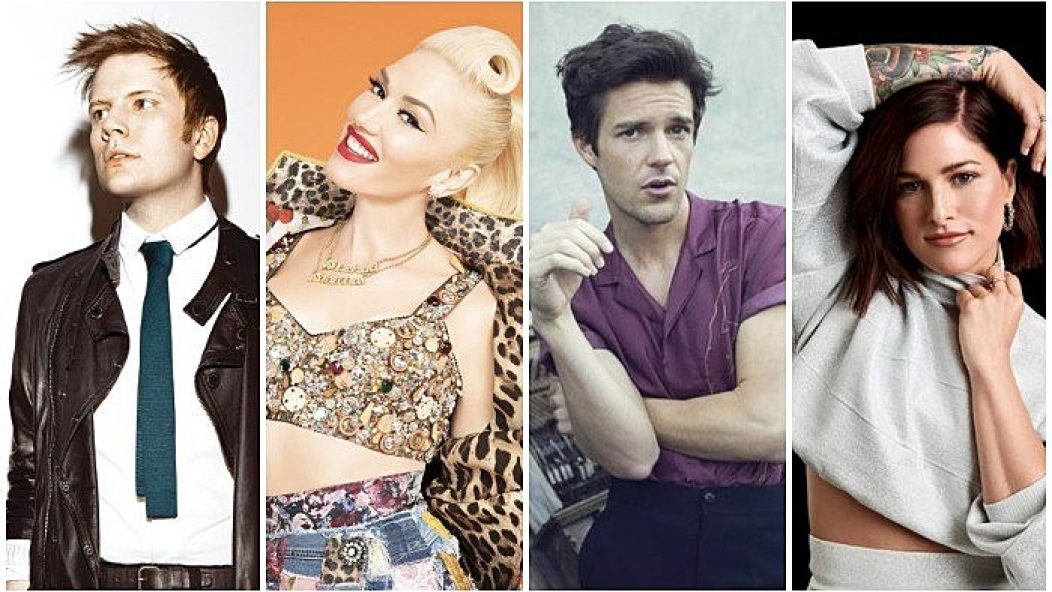
10 musicians who absolutely nailed switching genres as solo artists
Branding is one hell of an important factor to achieving success and maintaining a fanbase in music. So, it’s no surprise that many musicians use their solo projects as an avenue for genre experimentation.
We’ve seen it countless times to varying extents. Some artists may just incorporate new, genre-defying dynamics to their foundational sounds, whereas others may diverge from their established scene entirely. Of course, the success of such endeavors is wide-ranging as well.
Read more: The Offspring drop “Let The Bad Times Roll” off first album in 9 years
Here are 10 artists who changed their sound when they went solo and totally killed it.
John O’Callaghan (The Maine)
John O’Callaghan has been setting standards for alternative rock via the Maine for well over a decade now. So, when he first debuted his solo endeavor, John The Ghost, in 2016, we didn’t know what to expect going forward. Fortunately for fans, the singer-songwriter didn’t fully abandon his roots for the project. Rather, he expands on it with a soulful dreaminess, trading in his traditionally pop-punk leanings for some fresh, markedly alt-pop dynamics. He just released his first full-length under the project, I Only Want To Live Once, Feb. 12.
Martin Johnson (Boys Like Girls)
When you think of 2000s pop-punk bands, Boys Like Girls are right at the forefront. So it may come as a surprise that vocalist Martin Johnson diverged almost entirely from that foundation. Since 2017, the artist has been putting out ’80s-reminiscent, synth-laced pop tracks under the Night Game. His latest iteration, Beautiful Stranger, just dropped Feb. 5.
Brandon Flowers (The Killers)
We always knew that the Killers‘ frontman Brandon Flowers was born and bred for eclecticism. After all, the band have been toeing the lines of genre since their inception. Even so, Flowers’ debut release as a solo artist, Flamingo, caught us by surprise. The record brought us into an ambiguous country/folk territory and didn’t hold any punches when it came to sentimentality. Of course, he took it a step further with The Desired Effect in 2015, veering off into ’80s-leaning electropop. Talk about some serious whiplash…
Read more: 10 bands you might not have discovered without Pete Wentz
William Beckett (The Academy Is…)
Admittedly, we were beyond heartbroken when the Academy Is… called it quits in 2011. But the solo work that frontman William Beckett put out in light of the split may have made it all worth it. While preserving some of his alternative foundations, he dove headfirst into spirited and, at times indie-leaning, pop rock. Hot take: His first album, Genuine & Counterfeit, boasted the best lyricism of his collective works.
Gwen Stefani (No Doubt)
There was never any doubt (no pun intended) that Gwen Stefani could excel at whatever projects she took on. Did we expect the ska-punk icon to emerge as one of the leading pop artists of the 2000s, though? Not quite. Love. Angel. Music. Baby. gave us a good taste of this potential in 2004. Then The Sweet Escape came along two years later and solidified her standing as a dance-pop legacy.
Gerard Way (My Chemical Romance)
Had you told us in 2006 that Gerard Way would one day diverge from his emo roots, we would have considered it blasphemy. However, the My Chemical Romance frontman significantly reworked his sound after the band announced their hiatus in 2013. His first and, so far, only solo album, Hesitant Alien, dropped the next year and marked his eclectic journey into the realm of Britpop.
Read more: 10 of the saddest songs you definitely had on your iPod in the 2000s
Cassadee Pope (Hey Monday)
Cassadee Pope‘s departure from pop punk in favor of country music felt like the ultimate betrayal at the time. Looking back, though, it seems like it was the right move for the Hey Monday frontwoman. Pope went on to win season 3 of The Voice in 2012 and was launched into mainstream success. While we’d love for the band to reunite in some sort of permanent capacity, we’re truly just happy to see her thriving under her found niche.
Sonny Moore (From First To Last)
If you were present in the early 2000s alternative scene, you probably remember the rift in From First To Last‘s fanbase following Sonny Moore‘s departure. Age-old drama aside, though, Moore’s venture into EDM under Skrillex is one to be respected. The move launched him into stardom and gave him a platform with which he’s continued to influence mainstream music for over 10 years.
Sierra Kay (VersaEmerge/VERSA)
A beacon of alternative-rock ambiance, VersaEmerge (later rebranded as VERSA) became a scene staple at the turn of the 2010s. While the band have since broken up, vocalist Sierra Kay is now releasing music under the moniker Bad Daughter. The project is a marked divergence from the post-hardcore-influenced sound she once boasted, straying into a territory of upbeat Americana.
Read more: 10 bands that ultimately morphed into the ones we know today
Patrick Stump (Fall Out Boy)
Patrick Stump became so prolific under Fall Out Boy that we were shaken to the core when he decided to diverge a bit. No surprise, he went on to excel at his solo work too. The frontman released his debut solo album, Soul Punk, in 2011 and immediately wowed us with his dynamic, R&B-infused sound. Safe to say, we’ll never doubt any of his ventures going forward.
Who are some of your favorite artists who have changed up their established sounds after going solo? Let us know in the comments below!








